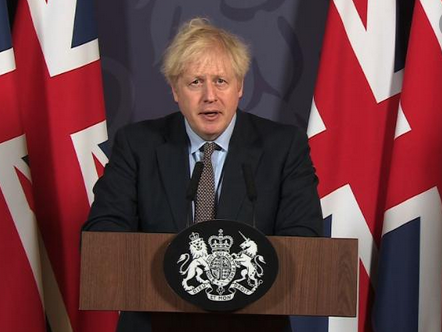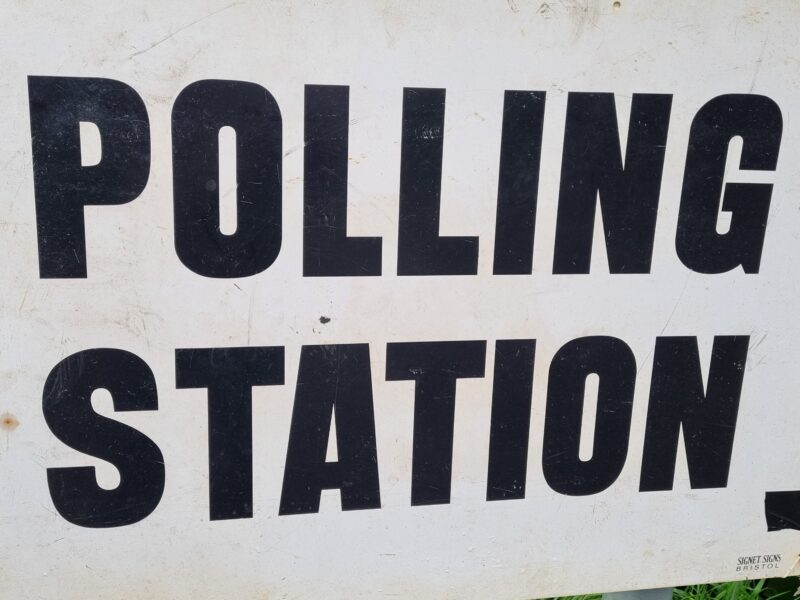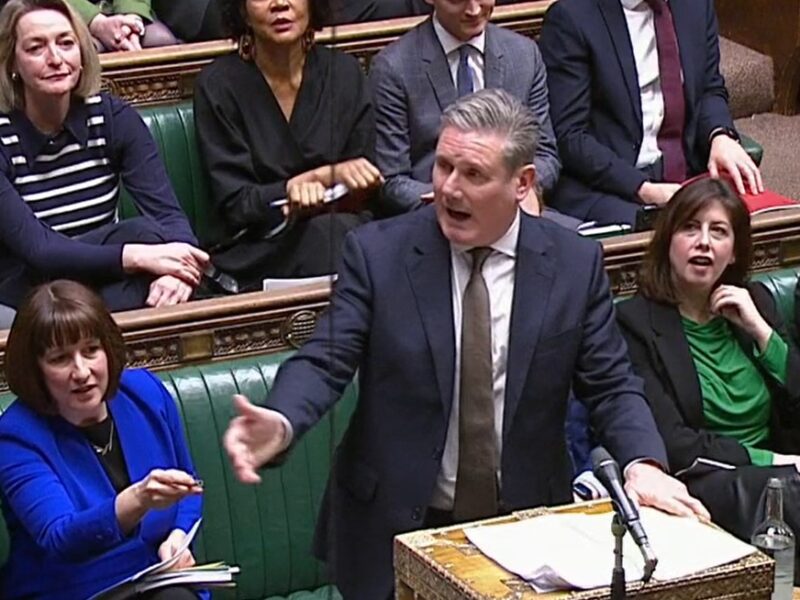Labour is wrong to vote for Johnson’s deal
Brexit is done. But despite Johnson’s boast of having “brought back control”, in no sense will the Brexit deal mean that the majority of the UK population have any more “control” over their precarious lives than they had before. In fact, it will be less so.
The deal put together between the EU and the UK government is an exercise in damage limitation, but damage there will be. The UK economy has already been hit harder than any other OECD country by the Covid pandemic and now, as a result of this deal, the UK’s economic trajectory will be even slower and lower than it otherwise would have been. This is the first ‘free trade’ deal in history that has actually raised tariff barriers, and which will have the effect of reducing trade. On financial services – the majority of British exports in terms of value – there is so far no deal at all.
No cause for celebration
According to the Financial Times editorial (December 24), “Government estimates have suggested UK national income per head will end up about 5 per cent smaller in the long run compared with remaining in the EU, due mostly to additional non-tariff barriers on trade”. These are not just statistics – like other bald numbers, they will have an impact on real people’s lives and living standards and there can be no cause for celebration in a government strategy that deliberately sets out to reduce them.
The historic role of capitalism lay in its ability to raise the productivity of labour, on the basis of technology, science and industry, and by that means to increase the production of all the necessities of life. Despite the wars, gross inequalities, oppression, racism and, we might now add, the environmental devastations that are inherent in capitalism, being able to raise productivity was its only historic justification.
Market system is historically defunct
From the point of view of capitalist development, an important element in raising the level of productivity has been the integration of the world economy into a single global market and within that the EU was one of the most highly integrated areas. As has been pointed out many times, EU is a ‘capitalist club’ with rules, regulations and safeguards designed to promote the interests of the capitalist system and its market. The market system is now historically redundant and incapable of providing the necessities of life for the big majority of the population. But the failure of an integrated market of 400 million cannot be corrected by breaking it into 28 separate failing markets. That idea is a reactionary utopia.
After 47 years of EU membership, the British and EU economies have become so interlinked that they relied on goods traded by means of 10,000 lorries a day crossing the Channel. Most of that trade will continue, but with the added cost of tens of thousands of customs officials and tens of millions of hours of form-filling to avoid tariffs. It represents a new and a huge cost that will ultimately fall on workers.
Serious cross-Channel disruption
Ironically, it was Covid that gave us a taste of what it means to have cross-Channel trade seriously disrupted – and perhaps that alone impelled the negotiators into a quick deal within days of the ‘Covid’ blockade. But rather than being a one-off ‘aberration’, the disruption of trade between English and French ports in December will become more like the norm in the future.
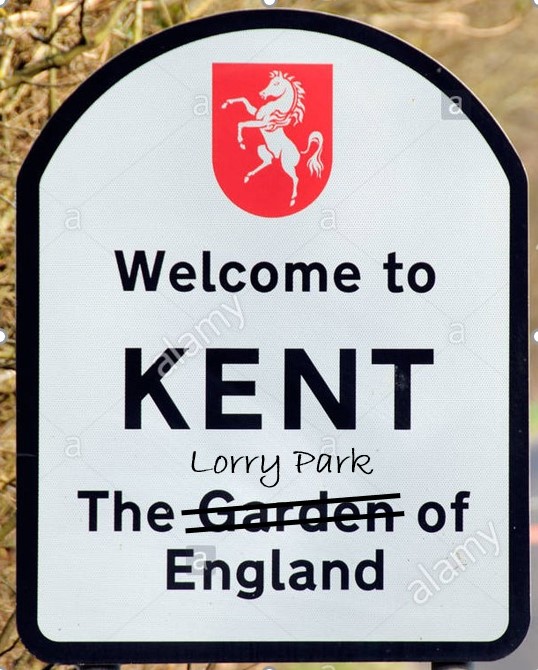
Left Horizons has always presented the issue in class terms: we have opposed a Tory Brexit. From Theresa May onwards, the strategy of the Brexit wing of the capitalist class, more closely aligned to hedge-fund managers and financial speculators than to industry, has been unchanged. It is aimed at the reduction or elimination of environment and food standards and the reduction of workers’ pay and working conditions. Their vision for the UK is for a low-wage, low-skill economy, attracting investment through lower living standards and a bonfire of regulations. London is already the world’s banker for dirty money and Johnson will want to develop that further. Notwithstanding the agreements in the current deal, these are still the aims of Johnson and his supporters.
In an earlier Left Horizons editorial we wrote, “Tory Brexiteers are peddling an illusion – worse, they have in mind a conscious aim to undermine jobs, conditions, food and environmental standards. Socialists have a responsibility to fight against the xenophobia and economic strategies of this reactionary wing of the Tory party. We must tell workers the truth and we cannot support an economic illusion, moreover one that provides an opportunity to scapegoat migrants, when socialists should support the free movement of labour”. (December 2018)
‘Lexit’ was never on the agenda
If there was a Labour government that was carrying out policies in the interests of working people and if that government was obstructed by the institutions of the EU, then that would have been a ‘Brexit’ worth fighting for, or a ’Lexit’, as it has been described. But with the brief exception of the period running up to the 2017 general election, when there was a possibility of a Corbyn-led Labour Party winning, ‘Lexit’ has never been on the agenda.
This Christmas Eve deal is Johnson’s and his alone and the Labour Party should not claim any ownership of it whatsoever. Johnson will get it through parliament even without Labour support and there is no justification for Labour supporting it in Parliament.
Deal rushed through parliament
As an aside, we note that the mainstream media are ignoring the heavy dose of irony in the fact that a government claiming to have brought ‘sovereignty’ back to the UK parliament, is pushing through a highly complex set of agreements – running to nearly two thousand pages, according to reports – with only a few hours allowed for parliamentary scrutiny. So much for ‘sovereignty’.
Labour must not be associated in any way with the fallout that will be felt from Brexit. In the short run, the only beneficiaries will be the Jacob Rees-Moggs of the world, whose finance companies have bet money on a falling pound and a collapse of the British economy. In the longer run, we will all feel the chill wind of a weakened economy.
We are getting used to Keir Starmer’s Tory-lite pronouncements on policy, but in whipping Labour MPs to support Johnson’s Brexit he has reached a new low. “It is not credible”, he claims, “for Labour to be on the side-lines.” Labour members will be wondering, as he troops through the lobbies with the Tories, why he doesn’t go the whole hog and join Johnson’s party. Even right-wing members of his own Shadow Cabinet are having second thoughts about supporting Johnson.
A deal ‘full of holes’
According to the Guardian, some Labour MPs are considering defying the Whip. “We are being asked to support a Boris Johnson deal that is full of holes,” one MP said, “on issues of security, fishing rights or level playing fields. Plus, it is going to go through anyway on Tory votes alone. I do not understand Keir’s position.”
Starmer’s opposition to the Tories must be one of the weakest and most insipid in modern times. As nominally a ‘Labour’ leader, he is organically incapable of seeing any issues from a working-class standpoint and his complete lack of bite, against the worst and most corrupt government of any post-war Tory administration, explains why Labour is not twenty points ahead in opinion polls, as it ought to be.
The Foodbank Christmas
What will the Brexit deal do in the long run? The agreement may provide for a more or less ‘level playing field – in terms of workers’ rights, food and environmental standards – but that is for now. What happens in the future will be different. Johnson, in addressing ‘Brexit-minded’ Tory MPs in a Sunday Telegraph interview made it clear that there will be possibilities for the UK to ‘diverge’ from EU standards and the measures put in place in the agreement to monitor mutual standards “should not be seen as being too restrictive.”
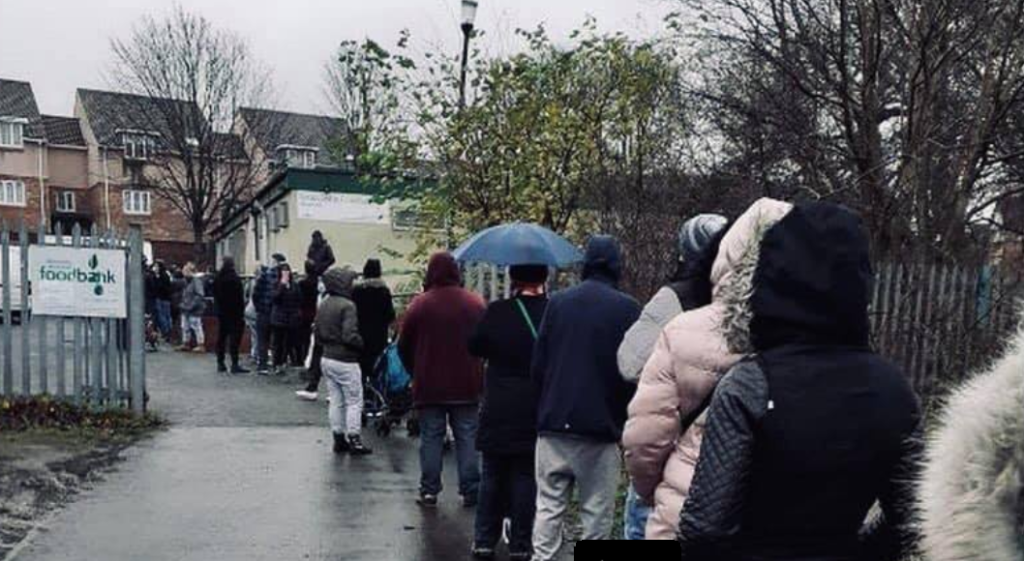
Indeed, in the Telegraph interview, Johnson makes typically flippant remarks about the UK lowering workers’ standards. All the agreement is really saying, he says, “…is the UK won’t immediately send children up chimneys or pour raw sewage all over its beaches.” These bad jokes are an attempt to cover up an underlying reality – that once we get past the “immediate”, the Tories will be driving as far and as fast as the deal allows, towards Victorian standards of workers’ rights and welfare.
For hundreds of thousands of families, this has been the ‘foodbank’ Christmas and for them, Victorian standards are already here. Almost five million adults have had to ration meals or have no access to healthy food. Fourteen million adults are in real poverty or are on the edge of poverty. The Food foundation found that more than a fifth of households with children experienced food insecurity in the first weeks of the March lockdown. It takes a football player’s campaign to get the Tories to provide free school meals over the holiday period. Foodbank Christmas is not only due to Covid, although the pandemic makes poverty worse, it is fundamentally due to low pay and an appallingly callous welfare system.
Now, the insecurities and uncertainties of everyday life will be made worse by a Tory Brexit agreement. Every tiny loophole or gap in the language of the agreement will be scrutinised to be avoided or bent in the coming years, to undermine workers’ rights and do away with food standards and environmental safeguards. The Tories have been very careful in recent months to avoid providing any EU-style food safeguards in their negotiations with the US over a UK-US trade deal. Chlorinated chicken and hormone/antibiotic beef here we come! That is the cry of the Tory Brexit party.
Brexit is done
Brexit is done. There is no doubt that the Tories are hoping that the economic fall-out from the deal will be lost in the much greater economic slowdown caused by Covid, and to some degree that will be true. However, the reality of Brexit will become clearer in terms of restrictions to travel, limitations on rights to work in the EU, with similar restrictions for EU citizens to live and work in the UK. It will be manifest in chronic interruptions in trade across the Dover Straits and in long waits for lorries to get across the Channel. It will become apparent in protests by fishermen, their unrealistic hopes raised by xenophobes like Farage, only to be dashed by Johnson’s deal.
In a political climate where workers will be asked to pay the costs of a corrupt pandemic strategy and the wholesale looting of the public purse, elements of the Brexit mess will still, nevertheless, come out in sharp focus.
There is a sense in which the Covid pandemic has acted as a dam, holding back the growing tide of discontent among sections of the population made to suffer the pandemic, while the super-rich grow fat. Low-paid, key workers were applauded in Spring, but have been kicked in the teeth by Johnson in Winter, and they will not let that insult pass.
There will come a point when the dam will burst, and when it does it will inundate Boris Johnson in waves of protest and anger. It will take Johnson and his Cabinet by surprise, as it will Starmer and the ‘New Leadership’ (read: New Labour) Shadow Cabinet. Not least, it will take many trade union leaders by surprise as their cosy bureaucratic world is shaken up and will not likely survive a post-Brexit onslaught.
Already, some trade unions are in the initial skirmishes with employers and the government. Unite has declared a rash of disputes, GMB are balloting in British Gas and even Unison are running strike ballots in hospitals. The unions will either have to transform, like the civil service union CPSA (forerunner to PCS) did in the 1980s, or they will die, like UCATT in 2017. Either way, this will be reflected in the Labour Party, with a split or the beginnings of a transformation, or both.
Socialists need to tenaciously fight on in the Labour Party and to play their part in the trade unions. We need to offer the maximum support and solidarity to the struggles of all union members in struggle and to working-class communities fighting for their rights. What has already happened in 2020 is unprecedented. What is coming next is also unprecedented, with an economy predicted to shrink by 6%, the biggest economic recession since the Great Frost of 1709, three hundred years ago.
We cannot predict in advance when the ‘dam’ bursts and big movements will come, but we can be sure they will, and not a moment too soon.
December 29, 2020

